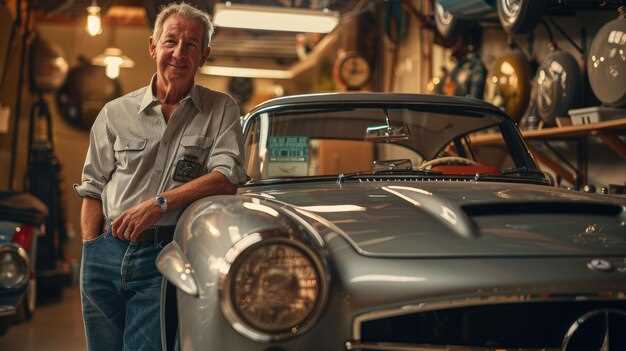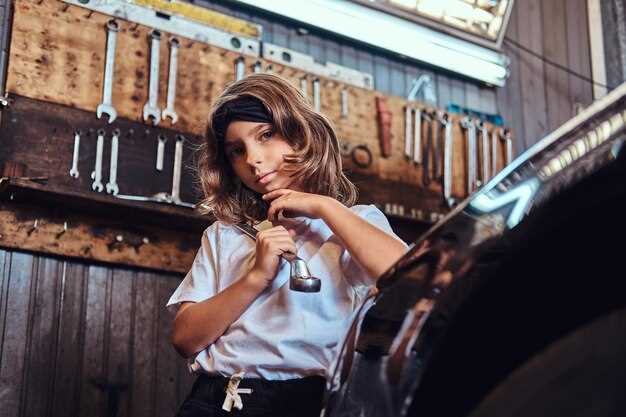Working with Classic Car Auctions Professionally

In the world of classic cars, auctions represent a unique intersection of passion and profit. For enthusiasts and investors alike, understanding the nuances of classic car sales can make the difference between a rewarding experience and a costly mistake. This guide aims to equip you with the essential knowledge and strategies for achieving success in classic car auctions.
The allure of classic cars is undeniable, and their value often appreciates over time. However, navigating the auction landscape requires careful preparation and informed decision-making. From researching the market trends to identifying the right classic vehicles, each step plays a crucial role in maximizing your auction outcomes.
Participating in auctions involves understanding the dynamics of bidding and the various factors that influence a vehicle’s sale price. Knowing how to approach a classic car auction not only enhances your chances of securing a prized vehicle but also positions you as a savvy bidder ready to capitalize on the unique offerings within this vibrant marketplace. By following the insights provided in this guide, you’ll be well on your way to achieving classic car auction success.
Understanding Market Trends for Classic Car Auctions

To navigate the world of classic car auctions successfully, it is crucial to stay informed about current market trends. The classic car market is influenced by various factors, including economic conditions, collector demand, and emerging preferences among buyers. Understanding these elements can provide valuable insights for both buyers and sellers.
One of the primary trends in the classic car auction market is the increasing popularity of specific models and types. Certain brands, particularly those with limited production runs or significant historical value, tend to attract higher bids. Notable houses in the auction industry often feature prestigious vehicles that are in high demand, driving up prices and interest.
The impact of technology on classic car auctions cannot be overlooked. Online auctions have gained traction, allowing a broader audience to participate. This shift has changed how collectors perceive value, making them more inclined to bid on vehicles they might not have considered in traditional settings. Consequently, monitoring online auction results is essential for understanding price fluctuations and buyer preferences.
Another market trend to consider is the age demographic of classic car buyers. Younger collectors are increasingly entering the market, seeking unique cars that offer a blend of nostalgia and modern driving experience. This generation’s preferences often shift towards vehicles that are not only classic but also environmentally friendly, influencing the types of cars that auction houses prioritize.
Finally, economic indicators play a significant role in market trends. Factors such as disposable income, interest rates, and overall economic health can impact buyer confidence and spending behavior. Sellers must remain aware of these trends when setting reserve prices and evaluating potential auction houses for their classic vehicles.
Preparing Your Classic Car for Auction Day

Preparing your classic car for auction day is essential for maximizing its sales potential. The first step is to thoroughly clean and detail the vehicle, ensuring both the exterior and interior are pristine. This attention to detail showcases the car’s condition and helps attract potential buyers.
Next, consider obtaining a professional appraisal. An expert can provide a realistic valuation based on the car’s make, model, age, and condition, which is crucial for setting an appropriate reserve price during the auction.
Documentation is key. Compile all relevant paperwork, including service history, original manuals, and previous registration documents. This transparency builds trust with buyers and can positively influence the sales process.
Additionally, it’s beneficial to address any minor repairs before the auction. Fixing small issues can significantly enhance the car’s appeal, making it stand out among other classic vehicles. Potential bidders will be more inclined to invest in a car that is in good working order.
On the auction day itself, be prepared to answer questions from interested parties. Familiarize yourself with the car’s specifications, history, and unique features to effectively communicate its value. Engaging with potential buyers can create a positive impression and help seal the deal.
Lastly, consider your auction strategy. Determine whether you will set a reserve price or allow for bidding to start at a lower amount to encourage competitive offers. Understanding the auction dynamics can give you the edge needed for a successful sale.
Choosing the Right Auction House for Your Vehicle
When it comes to selling a classic car, selecting the right auction house can significantly impact your sales outcome. Here are key factors to consider:
- Reputation: Research the auction house’s reputation in the classic car community. Look for reviews and testimonials from previous sellers and buyers to gauge their credibility.
- Specialization: Choose an auction house that specializes in classic cars. Such houses often have a better understanding of the market and connect you with the right audience.
- Track Record: Analyze the auction house’s past sales results. Check the average prices achieved for vehicles similar to yours, as well as their overall success rates.
- Marketing Strategies: Evaluate how the auction house promotes its sales. Effective marketing strategies can significantly enhance visibility and attract potential buyers.
- Fees and Commission: Understand the fee structure before committing. Auction houses typically charge a seller’s commission, which can vary. Make sure to assess how these fees may affect your profit.
- Location: Consider the auction house’s location. Auction houses in major markets may attract more bidders, enhancing your chances of a successful sale.
- Additional Services: Some auction houses offer extra services such as vehicle detailing or inspections. These can add value to your classic car and make it more appealing to buyers.
In conclusion, choosing the right auction house is crucial for maximizing the value of your classic car in sales. Take the time to research and compare your options, ensuring that you select a house that aligns with your vehicle’s unique characteristics and sales goals.



